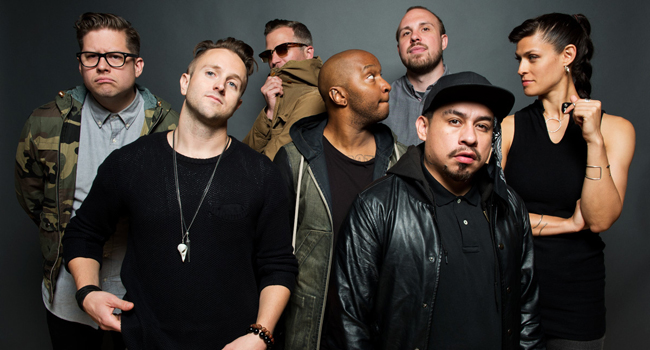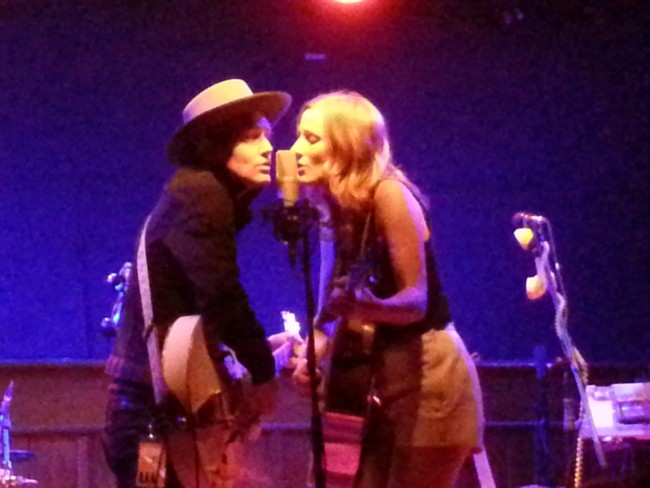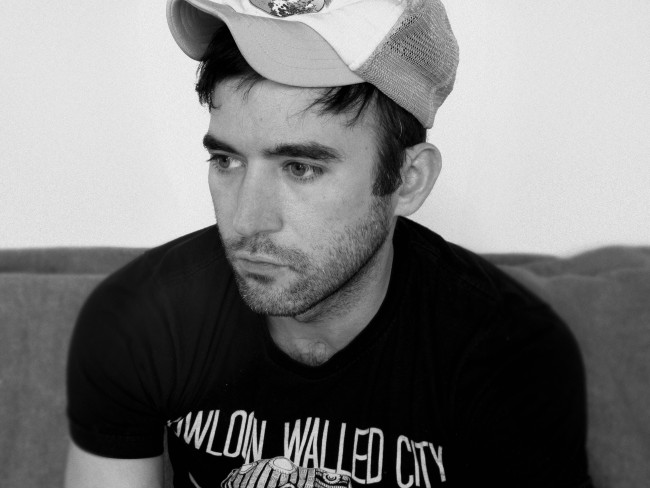The art of the “total” performer, putting not only their entire voice behind their live act but also their entire physicality, their entire soul, is rare. What they’re dancing isn’t routine, the singing isn’t always the lyric sheet, but they embody a rare spirit that at its best doesn’t seem of our own world. Ella Fitzgerald, James Brown, Otis Redding—only a precious few have joined the ranks, but watching Charles Bradley, face glazed in sweat, silk shirt pasted to him in dark pools, the lines of his cheeks—contorted wildly—the pained look as he looses his hissing howl of a scream, there’s no doubting that he belongs. That he is 63 years old, with no glorious youth at Tamla or Stax—his debut LP is less than a year old—is beyond uncanny. To see Bradley is to see youth after youth.
The forthcoming documentary “Soul of America” chronicles the singer’s remarkable rise and heartbreaking life story, debuting in a couple of weeks at SXSW. That Saturday night at Metro faced near-magical expectations. How could anybody, no matter the talent, live up to this?
Soul Summit DJs set the mood first, kindling a deep funk vibe over the Metro’s enormous speaker cabinets. A crucial move, because even before the living thing took the stage, the ghost of Soul was in the ballroom all night. Openers Little Barrie managed to coax the crowd into somewhat of a funk, if not a frenzy. Their titular frontman, sporting a Buddy Guy polka-dot shirt and considerable guitar chops, led his power trio through an hour of hard-riffing tunes that had the place bopping along. It was the kind of no-nonsense, straight rock ‘n’ roll that has informed so many British bands but few dare total immersion in. “Chicago,” he said without a hint of irony, “home of the blues, isn’t it?” The drummer, a mustached and long-haired libertine that looked like he had walked on stage out of the ’70s, lured the crowd with thunderously precise rhythm, blended with cutesy flourishes and clap-alongs. Openers can be necessary evils, or even detractions but Little Barrie was on point, relishing in the heat of the night and maybe even a bit humbled to be warming up for Bradley.
If the floor wasn’t quite full for the supporting act—standing space vanished in the chunk of time crews dismantled the stage, Soul Summit spinning a dazzlingly niche and eclectic array of Funk EPs.
When the moment came and the lights dimmed, a series of sharp-dressed Brooklyn kids stepped onto the stage. The band was listed as the Extraordinaires but bore a striking resemblance to the Menehan Street Band, one might say an exact double. Though there were six of them, arranged in typical soul fashion (horns together on one side, guitar and bass on the other) the setup was incredibly modest. Each brought their instrument on stage, plugged straight into their amplifier and began. As is the magic of Daptone records, there wasn’t a sound that proved inauthentic.
The horns led a little descent, then the whole unit plunged into a ripping instrumental to grease the crowd. Without a pause, the players transitioned into their second number, this one a little slower and Barrie Cadogan re-emerged, spouting off a series of superlatives about the next act, nicknames invented and actual, “Black Velvet, The Black Swan, the Screaming Eagle of Soul,” until he arrived at the artist’s birth name, met by uproarious cheers. The man himself strode up to the mic, clad in a silk purple suit, complete with cummerbund. There was a breath, a pause and then a triplet climb in unison—Bradley howled, “There was a time in my life … When the world was so cold,” the opening lines to the autobiographical hit, “Heartaches and Pain,” met with wild cheers of recognition.
Band and audience alike swayed to the cool rhythms, the look on Bradley’s face every bit as pained, earnest and mournful as the words it formed, splaying his arms towards the audience, begging them to hear him out. The song chronicles the shooting of his brother, one unspeakable tragedy from a life lived full of them. But the band refused to let the sadness to linger, raising spirits with the funky vamp of “No Time for Dreaming.” Hearing Bradley bellow, “Gotta get on up!” sends an icepick up the spine—maybe it’s a case of déjà vu direct from the Godfather but it gives the impression of “living legend,” neé imitator. It humbles you just to be there watching it. By the last hit of the tune, the audience was almost entirely broken into dance. Bradley thanked the crowd and took a deep, sensei-like bow—the first of many that night. His speaking voice is surprisingly sincere and sweet for such a deep and raspy singer, it takes you by surprise and fills you with tenderness.
Already steeped in sweat, the sexagenarian impelled the group through a powerful set with the grace and vitality of a performer half his age.
He pranced around the stage, tapping his feet, tossing the mic-stand, thrusting his hips, once even daring a full splits. When he arrived at his smash hit, “The World (Is Going Up in Flames,)” he had doffed his jacket in striptease fashion and, as if freed from a straightjacket, entered a trance-like state of incantation—total immersion. After a superb cover of Clarence Carter’s “Slip Away,” the artist took his own advice and the band stirred up another raggedy instrumental in his wake. Only now did it occur how anyone could scream that intensely for an hour—not without a water rest.
When he came back, Bradley was wearing a crimson suit that sparkled as he moved. The song was “Heart of Gold,” played in a slow and reverent shade of Al Green. And here was such an immersive cover that it may well have cleared the heads of the audience who had no idea they were hearing a Neil Young tune. Slow but never lethargic, the screaming eagle shouted, “STOP,” at the top of his lungs, creating total silence before the band plunged into the nasty, “This Love Ain’t Big Enough for the Two of Us,” with a plummeting, elastic bassline moving the hips of every man, woman and child within hearing range. The fever was maintained, at one point Bradley on the floor, writhing around as he sang, hamming it up with a grin for the front rows. To cap the set the Extraordinaires chose, “Golden Rule,” normally an admonishing protest song, which the bandleader flipped on its head to introduce the instrumentalists, who traded turns flourishing on their introduction with solos. Bradley provided the anecdotes, likening each instrument to its fleshy equivalent as only he knew how, “A saxaphone gonna put it in … and move it real slowly…” When they had finished, going out in a blaze of a jam, Bradley took his bows, waving graciously and ran off. While he may have been out of sight at this point, it didn’t occur to the huddled masses, all hollering as if he was still there, breaking into a stomp that ended with them getting their way—the saxaphonist ushering in Charles Bradley once again.
He emerged, he sang and when his band was left with nothing but licks, he did the unthinkable and stepped down into the hysterical din, hugging his way through the crowd like a priest administering a final blessing. Some screamed, some tugged their hair, snapped photos—wherever he went a bulge surrounded, trying to get in a word or two as all the while the band blared on.
There can be no questioning Charles Bradley’s ability to work a crowd but his real power lies in taking that same energy and channeling it into silent focus, which his last number would require.
“Why Is It So Hard,” is a searing Gospel that calls out by name the hypocrisies of a nation that lost touch with its compassionate values. It might be preachy, if Bradley didn’t use his own life as the example—you could hear through the passion in his voice that it wasn’t fury he was singing through, it was tears. The Extraordinaires broke into a vamp and this time the bandleader did speak, directly to the audience, “Don’t look at the creed or color I am. Look at what’s in my heart. This body is here to give you love,” He launched once more into the chorus, met with a strangely silent awe from the crowd. The vamp came back and Bradley staggered about the stage, again in a trance. He spoke and the words sounded sudden, from somewhere else, oftentimes incomprehensible and still the vamp went on. Then, steadying himself, he spoke clearly into the microphone, “I would never hurt any of you,” gravitating to the wings of the stage, his arms rising, “Cos where I’m going…” The drums rallied and soon the whole band was screaming out the ending, loudly enough that Bradley could disappear before the last chord. This time, despite the stomps, claps and cries—the crowd did not get its wish. The show was over.
It was a concert that bound one up with the rapture of a spiritual experience, leaving the rest of the night dim and inane in comparison. You might bask in the glow of it, but it takes some time to consciously process. There’s the sinking feeling you might never see anything like it again, a bitter aftertaste sets in. But then, as a great man once said, “Life is full of sorrow, heartaches and pain.”



